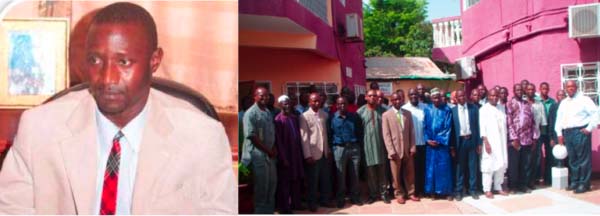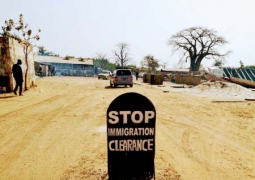
Dr Edward S. Sanneh, Minister of Energy, has said The Gambia still faces major challenges in the energy sector, despite making some achievements.
Minister Sanneh made these remarks yesterday at the Baobab Holiday Resort, while delivering his opening statement at a two-day review, discussion and validation of the National Renewable Energy Action Plan and National Energy Efficiency Action Plan within the framework of UN Sustainable Energy for All.
He said one of the challenges is the over dependence of the country on imported fossil fuel to provide modern energy services.
“More than 95 per cent of The Gambia’s modern energy services are based on imported fossil fuels,” he said, describing it as a huge drain on the country’s foreign reserves, and exposes the country to foreign exchange risks and its associated effects on the national economy.
To address this challenge in the energy sector, the minister noted, the Government under President Yahya Jammeh has been looking inward to utilize the indigenous energy resources to reduce the country’s dependence on imported fossil fuels.
These resources include renewable energy and energy efficiency, he went on, and that these are sustainable energy resources, which if judiciously exploited would go a long way in supporting the country’s economic development.
In this age of globalization, major development initiatives are not often undertaken by nation states in isolation, he further said.
“This is why under the umbrella of ECOWAS, member states came together to cooperate in the development of energy resources of the region.”
He added: “It is our wish that after the workshop, we will produce action plans which if implemented successfully will adequately address the challenges in the energy sector, and put the sector on a sustainable pathway.”
The availability of a reliable system of energy supply that is efficient, affordable, and environmentally sound is one of the vital components of the Gambia government’s development agenda, which focuses on poverty alleviation and the achievement of Vision 2016 and 2020, he further stated.
In recognition of the vital role energy plays in the socio-economic development of the country, the Gambia government has been doing all that is possible to provide the vital services of energy to the economy, the minister continued.
It has been challenging, but with support from their development partners, significant achievements have been registered in the energy sector, he went on.
Sanneh thanked all those who were involved in the process of the development of the action plan.
Hyacinth Elayo, Energy Policy analyst at the ECOWAS Centre for Renewable Energy and Energy Efficiency (ECREEE), in his remarks, commended the Gambia government for the “very impressive strides” made, particularly in the area of sustainable energy development.
Their partnership would complement The Gambia’s efforts to increase energy access “for our homes, businesses and industry and lead to greater” socio-economic development, he added.



